Hundredth Monkey’s Lyall Watson Dead At 69
Posted by: Loren Coleman on July 3rd, 2008
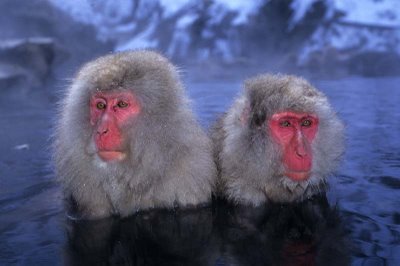
Snow monkeys or Japanese macaques Macaca fuscata.
The London Telegraph is reporting that Lyall Watson has passed away in Australia.
Known as an animal man, explorer, adventurer, and Fortean, his books served as a catalyst to other thinkers.
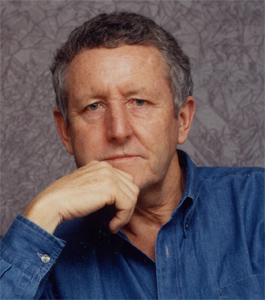
Lyall Watson, who died on June 25 aged 69, was an author of thoughtful books on natural history mysteries, including the bestselling Supernature (1973). He introduced the psychic showman Uri Geller to British television audiences, and in the 1980s imported sumo wrestling to the West, presenting coverage of sumo tournaments on British television.
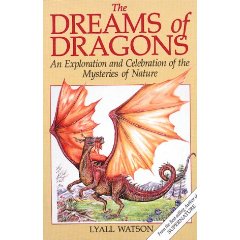
Watson was the author of such books as The Dreams of Dragons: An Exploration and Celebration of the Mysteries of Nature, in which he maintained that there is a truth to be found behind every seemingly impossible legend.
The author of Archimedes to Hawking: Laws of Science and the Great Minds Behind Them, Cliff Pickover, when young, wrote down his favorite quote from Supernature:
Life survives in the chaos of the cosmos by picking order out of the winds. Death is certain, but life becomes possible by following patterns that lead like paths of firmer ground through the swamps of time. Cycles of light and dark, of heat and cold, of magnetism, radioactivity, and gravity all provide vital guides – and life learns to respond to even their most subtle signs. The emergence of a fruitfly is tuned by a spark lasting one thousandth of a second; The breeding of a bristle worm is coordinated on the ocean floor by a glimmer of light reflected from the moon… Nothing happens in isolation. We breathe and bleed, we laugh and cry, we crash and die in time with cosmic cues.
~ Lyall Watson, Supernature.
A radical thinker operating at the margins of accepted science, Watson was an apparent polymath who might have sprung fully-formed from a Victorian adventure by Jules Verne or H. Rider Haggard.
A dapper, shimmering figure, often dressed for the tropics in a safari suit of white linen, he led the first scientific journey up the Amazon river, and was the first white person seen by headhunters in Papua New Guinea.
Supernature, his most successful book, dealt with mysterious and inexplicable natural phenomena. It became a 1970s student essential, and was acclaimed for its stimulating treatment of exotic and unexpected scientific facts and discoveries.
As a populariser of science snapping up unconsidered nerdy trifles, Watson ranged over astrology, paranormal phenomena, alchemy, circadian rhythms, palmistry, dreams and much else.The book went into 10 reprints in as many weeks, topped the bestseller list for 50 weeks, sold 750,000 copies in paperback and was translated into eight languages.
His open-mindedness was refreshing, said one reviewer in The Daily Telegraph; another upbraided him for being “embarrassingly credulous” in accepting a claim that plants responded to the killing of a live shrimp thrown into boiling water.
A botanist, zoologist, biologist, anthropologist and ethologist, at 23 Watson was director of Johannesburg Zoo, and subsequently became an expedition leader, a television producer and Seychelles commissioner for the International Whaling Commission. Describing himself as a “scientific nomad,” he considered conventional science simply inadequate to explain much human experience.
Watson followed Supernature with a book about the nature of death, the afterlife and the supernatural, The Romeo Error (1974), and this, too, became a bestseller.
In his sixth book, Lifetide (1979), Watson made what was believed to be the first published use of the term “hundredth monkey”.
This phenomenon referred to a sudden spontaneous and mysterious leap of consciousness achieved when an allegedly “critical mass” point is reached. Watson was writing about several studies done in the 1960s by Japanese primatologists of Japanese macaques (Macaca fuscata).
Claiming that the scientists were “reluctant to publish [the whole story] for fear of ridicule”, Watson wrote that he had to “gather the rest of the story from personal anecdotes and bits of folklore among primate researchers, because most of them are still not quite sure what happened”.
Watson’s tale was that an unspecified number of monkeys on the Japanese island of Koshima were washing sweet potatoes in the sea. But the addition of a further monkey – the so-called hundredth – apparently carried the number across some sort of threshold, pushing it through a kind of critical mass, because by evening almost every monkey was doing it. Moreover the habit seems to have jumped natural barriers and to have appeared spontaneously in monkey colonies on other islands and on the mainland.
Although it seemed a good story, the part about spontaneous transmission, at least, was not true. Watson, however, was blamed only for “myth-making” rather than confabulation. “It is a metaphor of my own making,” he admitted in 1986, “based on very slim evidence and a great deal of hearsay. I have never pretended otherwise.” Although the hundredth monkey theory occupied only a few paragraphs of his total output, it bulked disproportionately large in critical studies of his work. Watson himself remained unrepentant, however, and declared on his website: “I still think it’s a good idea!”
Malcolm Lyall-Watson was born on April 12, 1939 in Johannesburg, the eldest of three brothers. His Scottish father was an architect and his mother, a radiologist, was descended from Simon van der Stel, the first Dutch governor of the Cape.
Young Mo learned to read from a 457-page copy of Birds of South Africa, and on his first day at school already knew 800 species of bird by heart.
In a world in which adults were preoccupied with the Second World War, young Lyall grew up running wild in the bush, and was taught by Zulu and Kung bushmen before being sent as a boarder to Rondebosch Boys’ High School, Cape Town.
Patrick Huyghe, science writer and editor of The Anomalist, noted in an email to me that Watson wrote many engaging and great books, but Huyghe’s personal favorite is Elephantoms, about Watson’s experience with elephants as a young boy in South Africa.
An exceptional scholar, Watson started at the University of the Witwatersrand aged 15 and by the age of 19 held degrees in Botany and Zoology. While still in South Africa, he added degrees which included the study of Geology, Chemistry, Marine Biology, Ecology and Anthropology, before moving to London, where he completed a doctorate in Ethology (animal behaviour) at London University under the supervision of Desmond Morris, author of The Naked Ape, and then curator of mammals at London Zoo.
Having thus made himself virtually unemployable (as he wryly noted), he joined BBC Television as a producer and reporter on “Tomorrow’s World,” professionally abandoned his given name of Malcolm, started a consultancy, designed and directed zoos, ran a safari company in Kenya and founded a marine national park in the Seychelles.
In 1973 he shared a television studio with the fork-bending psychic Uri Geller, whom he claimed to have discovered, and who was making his first live TV appearance. It had been Watson’s suggestion, in the wake of Supernature, that the BBC fly Geller from the United States to demonstrate his apparent powers of psychokinesis.
Although Watson had struggled for two years to persuade a publisher to take his book, the success of Supernature threw him into the spotlight. He began lecture tours and was picked up by the Japanese as a cult hero.
In Japan huge billboards were erected showing him lying on a raft drinking a local beer while being poled along by a beautiful woman. His annual visits to the country kindled an interest in the tradition of sumo wrestling, and he studied the art and met top fighters and their management teams.
Watson lobbied to get a series of championship fights presented at the Albert Hall in London: the touring party and entourage filled two Jumbo jets to capacity. He presented the Sumo series for Channel 4, giving a running commentary on the fights. Although few expected the traditional Japanese sport to attract more than a few hundred viewers, in the event it rapidly drew audiences of many thousands.
He started work on his first book, Omnivore (1972), in the early 1960s, and produced 25 titles in all, covering an eclectic range of subjects including the nature of crowds and a history of the wind. His last, The Whole Hog (2004), explored the history and potential of pigs.
Watson had an endlessly enquiring mind and never lost the habit of questioning received wisdom. Restless and nomadic, he travelled widely throughout his life, visiting Antarctica numerous times as an expedition leader and researcher. He introduced into his own body a tapeworm called Fred which, he claimed, unfailingly protected him from stomach disorders abroad. At various times he lived in America, South Africa, England and latterly Ireland, rising at six every morning to write for three hours before starting his day.
Although Supernature opened many doors for Watson – he dined at Buckingham Palace and with the Japanese royal family – he remained a very private man, protective of his personal space. His enquiring mind never relaxed, and he was always on the lookout for the unusual, and the truth behind the obvious.
In 1985 Watson was appointed a Knight of the Order of the Golden Ark by the Netherlands in honour of his conservation work on the International Whaling Commission.
Although he had no children, he indulged his five nieces on their 18th birthdays by taking them anywhere in the world they wanted to go. On the first of these trips – to Egypt – a diner in a restaurant offered Watson 200,000 camels for the hand of his eldest niece, Katherine. After a lengthy, pregnant pause, Watson successfully called the admirer’s bluff when he replied that her price was her weight in gold.
Lyall Watson married, in 1961, Vivienne Mawson (dissolved 1966); his second wife, Alice Coogan, predeceased him in 2003, according to the London Telegraph’s obituary.
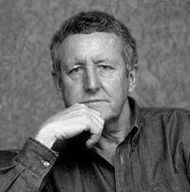
^^^^^^^^^^^^^^^^^^^^^^^^^^^^^^^^^^^^^^^^^^^^^^^^^^^^
“Save The Museum”: Easy-to-use donation buttons are now available here or merely by clicking the blank button below. Thanks everyone!
Or you may directly send a check, money order, or, if outside the USA, an international postal money order made out to
International Cryptozoology Museum
c/o Loren Coleman
PO Box 360
Portland, ME 04112
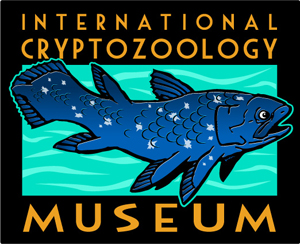
About Loren Coleman
Loren Coleman is one of the world’s leading cryptozoologists, some say “the” leading living cryptozoologist. Certainly, he is acknowledged as the current living American researcher and writer who has most popularized cryptozoology in the late 20th and early 21st centuries.
Starting his fieldwork and investigations in 1960, after traveling and trekking extensively in pursuit of cryptozoological mysteries, Coleman began writing to share his experiences in 1969. An honorary member of Ivan T. Sanderson’s Society for the Investigation of the Unexplained in the 1970s, Coleman has been bestowed with similar honorary memberships of the North Idaho College Cryptozoology Club in 1983, and in subsequent years, that of the British Columbia Scientific Cryptozoology Club, CryptoSafari International, and other international organizations. He was also a Life Member and Benefactor of the International Society of Cryptozoology (now-defunct).
Loren Coleman’s daily blog, as a member of the Cryptomundo Team, served as an ongoing avenue of communication for the ever-growing body of cryptozoo news from 2005 through 2013. He returned as an infrequent contributor beginning Halloween week of 2015.
Coleman is the founder in 2003, and current director of the International Cryptozoology Museum in Portland, Maine.







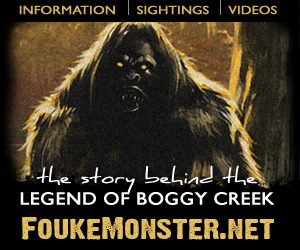


Great eulogy Loren.
What a life!
Rest in Peace Mr. Watson.
No, no. The majority of the credit goes to the Telegraph’s details (as noted in the link), retained as text to better show the Watson book titles in italics. My own fine-tuning and additions were added to the mix, reflective of those elements of the man’s life I wished to highlight for Cryptomundo. I was hoping to reference the obit’s author, but the UK paper did not give one.
Well then… kudos to the mystery writer 😉
This is really sad news.
Lyall Watson has long been my favourite writer, for all the reasons mentioned above in this lovely piece. He was an original thinker, totally unblinkered, but erudite enough to distinguish extreme possibilities from B.S.
Lyall Watson was never totally convinced about survival after death, but “goodbye and thanks” anyway, Lyall, just in case you were mistaken.
See ya, Lyall.